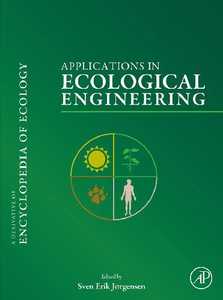>>1647>Here is the ultimate expression of what I mean by "use of technology must not come at the cost of distancing ourselves from the qualitative experience of nature" -- you should visit the farms you purchase from and judge based on your qualitative experience.This sort of ruthless empiricism and nullius in verba attitude is exactly the fruit of Enlightenment science that should be carried forward. I don't know how technology became so entangled with the more fundamentally human goals of the sciences (I mean, I can construct a narrative from the hip, but it wouldn't be interesting or careful, and it would be the obvious one -- I'm reading my way towards a better understanding slowly).
Though I suspect when you say
>post-Enlightenment Scienceyou add the "post-" for a reason, so I think you agree that society lost the thread somewhere between then and now.
>"[It] must be the motives of a complete cosmology to construct a system of ideas which brings the aesthetic, moral, and religious interests into relation with those concepts of the world which have their origin in natural science."You would like Musil. Sorry to shill him for the n-thousandth time.
>A philosophy that puts quantity first and quality as ephemeral (ie most of post-Enlightenment Science) will find a natural ally in the machine and struggle to provide a coherent explanation of teleology and organism.>I'm highly skeptical of thermodynamics-first explanations as this is just a furthering of the quantity-first regime.I don't disagree that woo is a necessary step, but I want to caution that when
>>1642 states
>So what are the intermediate steps? For one thing, we need rigorous, mathematically specifiable accounts of teleology and form in physics, chemistry, and biology.you seem to read in a quantity-first regime. But I think this confuses "mathematical" for "quantitative," which is really not quite right at all.
A good example of a might be Darwin's theory of evolution, which is certainly mathematical in construction, but hardly quantitative in its time (the case is made just fine here
https://egtheory.wordpress.com/2018/08/04/darwin-algorithm/).
I think the quantity-first regime you target is, and I hate to say it, the mindset of the technician or the engineer, and I think a "mathematical" regime is exactly what we want. Consider current trends in machine learning: a large number of researchers are benchmark chasing, using various metaheuristics to tune their hyperparameters, and generally following the mantra of the engineer:
"I only want to understand so far as it helps me get it working."
More "mathematical" (theory, yes, but other approaches, too, not all of which are quantitative -- see e.g. mechanistic interpretability, much of which is currently focused on defining what exactly are the phenomena of interest and operating descriptively) approaches are often useless, considered painfully slow, and seen as unsuccessful in "advancing the state of the art" -- and they are, because the goal is *understanding*, which is a humanistic goal totally averse to "just getting it working." In fact, in this mode, one only wants to get "it" working so far as "it" helps them understand.
If our understanding let's us eventually crunch some numbers, so be it, but that's never the goal (conditional on healthy scientific practice).
Now, you might completely agree on that, and you might find something else objectionably "quantity-first" about e.g. thermo approaches, in which case, lay it out there! I'm interested either way.




